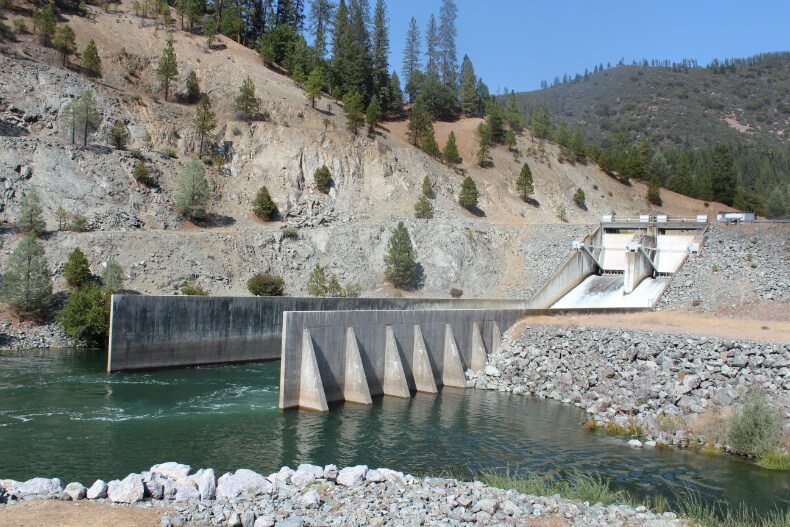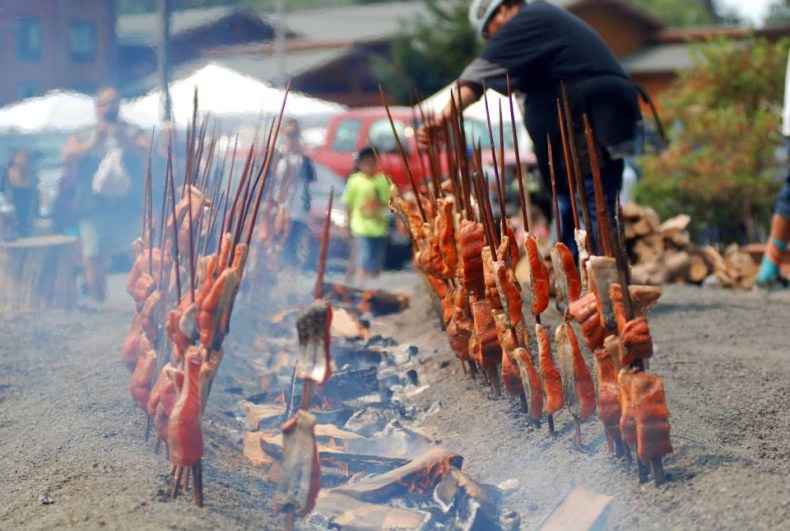
Hoopa Valley Tribe: San Luis Settlement Agreement will “Condemn Tribe to Poverty”
By Dan Bacher / Intercontinental Cry
On May 24, the Hoopa Valley Tribe from Northern California filed its objection to two bills proposed in the House of Representatives to implement the controversial San Luis Settlement Agreement, saying the agreement would “forever condemn the Tribe to poverty.”
The Tribe filed its complaint prior to a hearing on the two bills, H.R. 4366 (Rep. David Valadao) and H.R. 5217 (Rep. Jim Costa, D-CA), held by the U.S. House of Representative Natural Resources Committee Subcommittee on Water, Power and Oceans.
“Our Tribe is an indispensable party to this settlement,” said Chairman Ryan Jackson, in a press release. “We notified Congress and the Bush and Obama Administrations on numerous occasions over the past several years of our concerns. Though we have been mostly ignored, rest assured, this legislation will not advance in absence of protection of our interests.”
The invited witnesses were John Bezdek , Senior Advisor to the Deputy Secretary, U.S. Department of the Interior; Tom Birmingham, General Manager, Westlands Water District; Jerry Brown, General Manager, Contra Costa Water District; Steve Ellis, Vice-President, Taxpayers for Common Sense; and Dennis Falaschi, General Manager, Panoche Water District.
Notably, the Committee did not invite those most directly impacted by the deal. These include the leaders of the Hoopa Valley, Yurok, Karuk, Winnemem Wintu and other Tribes, commercial and recreational fishermen, family farmers and others whose livelihoods have been imperiled by decades of exports of Trinity, Sacramento and San Joaquin River water to corporate agribusiness interests irrigating drainage-impaired land on the west side of the San Joaquin Valley.
Jackson said the Settlement Agreement contains Central Valley Project (CVP) water supply assurances for 895,000 acre feet of water for the Westlands Water District that originate from the Trinity River, a watershed that the Tribe “has depended for its fishery, economy and culture since time immemorial.”
Michael Orcutt, Hoopa Tribal Fisheries Director, said, “It is a travesty that the pristine waters of the Trinity Alps that have nurtured our people have been diverted from their natural course, sent 400 miles from our homeland and converted into toxic industrial waste by agribusiness in the Central Valley.”
“What makes this worse is that the destruction of our water quality was aided and abetted by our Federal Trustee, the Department of the Interior,” said Self-Governance Coordinater Daniel Jordan.
Instead of ensuring that existing law is enforced for the Tribe’s benefit, the Tribe said the United States government has “focused its energy on escaping federal liability for the generations of mismanagement of the reclamation program.”
The Tribe said it has the first right of use of Trinity River water under the 1955 federal statute that authorized the Trinity River Division of the CVP, but the San Luis Unit settlement and legislation as proposed ignores this priority right held by the Tribe.
“The Secretary of the Interior and Attorney General are blatantly ignoring our rights and the Congressionally-mandated responsibility of the Bureau of Reclamation to furnish the water necessary for fish and wildlife and economic development in the Trinity River Basin,” stated Orcutt.
The Tribe’s testimony includes a proposal for settlement of the drainage issue that also provides for long overdue fair treatment of the Hoopa Valley Tribe. “If Congress approves our proposals, the Hupa people would finally get a long overdue measure of justice,” according to the Tribe.
“Our culture and economy have been devastated by the federal government’s mismanagement of the Central Valley Project and the San Luis Unit contractors’ ongoing assaults on our rights to Trinity River water,” said Jackson, “Now is the time to end the fighting and begin the long process of recovery.”
A coalition of fishing groups, conservation organizations, Delta farmers, Tribal leaders and environmental justice advocates is opposing the bills. Barbara Barrigan-Parrilla, Executive Director of Restore the Delta, said U.S. taxpayers, and Californians in particular, should be “alarmed” that H.R. 4366 and H.R. 5217 (Rep. Jim Costa, D-CA) are moving forward.
“The settlement agreement reached in September 2015 between the Obama Administration and these large industrial agricultural, special-interest water districts, will result in a $300 million taxpayer giveaway without addressing or solving the extreme water pollution these irrigation districts discharge into the San Joaquin River, and ultimately, the San Francisco Bay-Delta estuary. It is exactly these types of taxpayer giveaways to corporations that have incensed voters in both parties this election year,” said Barrigan-Parrilla in a statement.
The objections filed by the Hoopa Valley Tribe on May 24 come just a week after the Tribe filed a 60-day notice of intent to sue the Bureau of Reclamation (BOR) and NOAA Fisheries for violating the Endangered Species Act (ESA) by failing to adequately protect salmon on the Trinity and Klamath rivers.
“Failure by these federal agencies to reinitiate consultation on the flawed 2013 Klamath Project Biological Opinion (BiOp) will simply add to the millions of sick and dead juvenile salmon already lost due to the Klamath Irrigation Project. High infection prevalence of the deadly salmon parasite Ceratomyxa nova has been directly linked to the Project and its effect upon natural flows in the river,” according to a statement from the Tribe.
“The juvenile fish kills in 2014 and 2015, while not as noticeable to the naked eye as dead adults on the banks, are as devastating to Hupa people as the 2002 adult fish kill,” said Chairman Ryan Jackson.
Meanwhile, the Brown and Obama administrations are pushing a plan that threatens the San Francisco Bay-Delta and Klamath and Trinity rivers, the California Water Fix to build the Delta Tunnels. The plan would hasten the extinction of Central Valley steelhead, Sacramento River winter run Chinook salmon, Delta and longfin smelt and green sturgeon, as well as imperil the salmon and steelhead populations on the Trinity and Klamath rivers.

